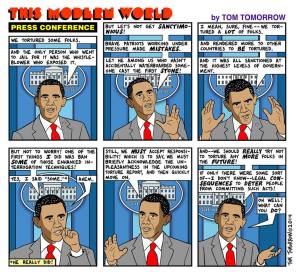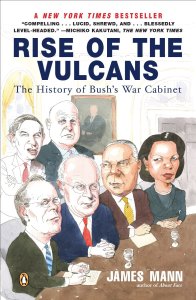W.J. Astore
The big news in U.S. politics today is Liz Cheney, daughter of former Vice President Dick Cheney, losing her House seat to a Trump-backed challenger.
Liz Cheney has recently built a reputation as the “sensible” Republican, calling on other Republicans to reject Trumpism, alternative facts, fake news, and all the rest of Trump’s baggage. She was an outspoken critic of Trump’s role in the January 6th Capitol riots. She broke from the Trump cult and was punished for it.

Trump’s hold on the Republican Party is indeed strong, but I don’t see him as a cult-like leader. I think many of Trump’s followers are with him because of the lack of viable alternatives. Trump’s strength, in other words, is the weakness of his competitors, including Republican has-been challengers like Ted Cruz and Marco Rubio, but especially of Democrats like Joe Biden, Kamala Harris, and Nancy Pelosi.
There’s been much hype in the mainstream media about Joe Biden having finally found his groove, with legislation being passed that is supposed to address climate change, to lower prescription drug prices, and to make health care more affordable. But when you look closely at what Biden has signed into law, the benefits largely disappear. Provisions to address climate change include massive handouts to the fossil fuel industry. New regulations to lower drug prices won’t come into effect until 2025 at the earliest, and only for a small number of drugs. (The cost of insulin will remain high for anyone not on Medicare, i.e. anyone under 65 without excellent health insurance.) Subsidies for health insurance are available but drive people into the “marketplace” where they can buy private for-profit health care plans that include high co-pays and deductibles.
In short, the Democrats, the main opposition to Trump, are up to their usual tricks, promising to make things better for the working classes while doing the bidding of their owners and donors. It’s Democratic actions and inaction, more so than the wonders of Trump’s personality, that drive so many people to look to Trump as a viable alternative.
The Democrats could win back many of Trump’s supporters if they simply kept their campaign promises. Those included, among others, a $15 federal minimum wage, significant student debt relief, a public option for health care, and family-friendly benefits for child care, family leave, education, and the like. They simply haven’t done it, and won’t do it, because the quest for corporate money and donors continues to drive policy.
So the Democratic playbook for this fall is the same as it’s been for years: scare the people into voting against “crazy” Republicans. Indeed, the Democratic establishment has actively funded more extreme right-wing candidates, boosting their chances in primaries against more moderate Republicans, because the Democrats assume they’ll have a better chance defeating the “crazy” right-wingers in November. One might ask Hillary Clinton how that worked out for her campaign in 2016 as she boosted Donald Trump against candidates like Jeb Bush, knowing in her heart that Trump would be far easier to defeat. What happened there, Hillary?
Trump, of course, has always been a sly con man. In a sense, he isn’t a hypocrite. What you see is what you get with Trump. With the Democrats, what you see is not what you get. We keep being told that Biden is accomplishing great things, that he’s channeling FDR (!), when it’s obvious he is what he’s always been: a centrist law-and-order Democrat who’s loyally served Wall Street, Big Pharma, and similar big money and corporate interests for virtually his entire 50-year career.
Those Americans who choose to follow Trump, in short, are not a bunch of irredeemable deplorables, they’re not gullible cultists, they’re not bigots, racists, and white supremacists. Not in the main. They’re Americans looking for answers, caught in a vise, being squeezed by the uncaring powers around them, including their own government, and including politicians like Liz Cheney.
Liz Cheney’s father didn’t prevent the 9/11 attacks. He got America involved in two disastrous wars in Afghanistan and Iraq that killed and wounded tens of thousands of U.S. troops and hundreds of thousands of Afghan and Iraqi people. He was a director of America’s military-industrial complex that harmed so many of the sons and daughters of parents who became Trump supporters because they were tired of endless wars that served no one but the friends of Cheney. And Liz Cheney used her father in campaign ads that touted her as a patriot against the corruption of Trump.
That obviously didn’t sit well with the people of Wyoming.
There’s an increasing sense of desperation in America, a growing sense that things are getting worse, that we’re headed for Dickensian times of hardship and exploitation. And Democratic “solutions” aren’t even half measures. Nor was signing up Liz Cheney as an ally to rail against Trump and his MAGA followers.
The answer — and we’ve heard it before — is hope and change. Real hope and real change. We had a candidate and a movement in 2008 who seemed to embody true change, but as soon as he won the presidency, he disbanded his movement, kowtowed to Wall Street, and passed a Republican health care bill that ironically became known as Obamacare. After that record, you can see why so many Americans decided they “won’t get fooled again,” and why more than a few Obama supporters switched to Trump in 2016.
What’s the answer? One thing is certain. It’s not “centrists” like Liz Cheney — or Joe Biden. The voters have spoken.







